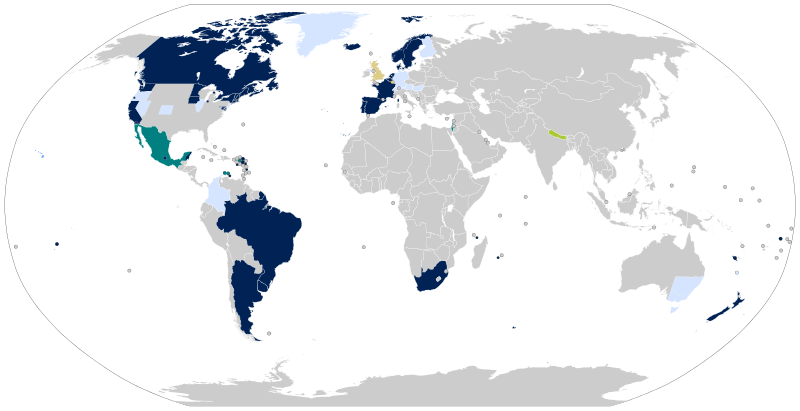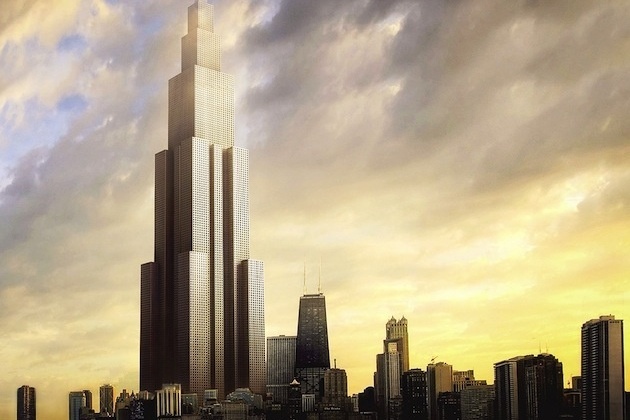Security guru Bruce Schneier suggests Snowden might not have considered all the likely outcomes:
Edward Snowden has set up a dead man's switch. He's distributed encrypted copies of his document trove to various people, and has set up some sort of automatic system to distribute the key, should something happen to him.
Dead man's switches have a long history, both for safety (the machinery automatically stops if the operator's hand goes slack) and security reasons. WikiLeaks did the same thing with the State Department cables.
I'm not sure he's thought this through, though. I would be more worried that someone would kill me in order to get the documents released than I would be that someone would kill me to prevent the documents from being released. Any real-world situation involves multiple adversaries, and it's important to keep all of them in mind when designing a security system.
Possibly spending a few years at the Moscow airport might be his safest option. But then again, his whole strategy seemed flawed from the start.
The Met issues a heat warning as London experiences its fifth consecutive day of 30°C weather? Nope.
Heathrow will finally get a third runway, with new plans submitted this week? Nope.
The Queen has given her assent to a law making same-sex marriage legal in England and Wales? Yep:
The Queen's approval of the Marriage (same sex couples) Bill was a formality, and now clears the way for the first gay marriages, the first of which are expected to be conducted by Summer 2014.
The bill enables gay couples to get married in both civil and religious ceremonies in England and Wales. It also will allow couples who had previously entered into a civil partnership to convert their relationship to a marriage.
However, religious organisations will have to 'opt in' on performing gay marriages.

Nice map (from Wikipedia). I hope it gets filled in a lot more over the next few years.
Josh Marshall summarizes the surprising and imminent collapse of Egypt's government and why the U.S. is in a strange position:
The big movement over the last day or so has been the slow motion - or perhaps not so slow motion - collapse of the Morsi civilian administration. Not ‘the state’ in the broader sense, but Morsi’s government. The scale of the demonstrations over the last two days seemed to catch everyone by surprise, leading to the pivotal ultimatum issued by the head of the Egyptian Armed Forces, giving the political players 48 hours to come to some sort of consensus and respond to the ‘will of the people’ expressed through the protests or have the military step in. At least 10 ministers from Morsi’s government have resigned, including the overnight resignation of the Foreign Minister.
Overnight (US time) the Brotherhood started trying to organize counter-demonstrations with what seemed to be the pretty explicit aim of physically confronting the anti-Morsi protesters - not an idle threat since the Brotherhood spent decades as an underground group with a significant paramilitary component, though pictures like this don’t inspire a lot of confidence in their current ability to engage sustained action. And just moments ago, one leaders of the Brotherhood called for ‘martyrdom’ to stop the protests. So here we have the perhaps novel instance of Islamist calling for martyrdom on behalf of electoral legitimacy. Or something like that.
So here you have Morsi, clearly no friend of the US or the administration, in the perilous position of counting on the US to keep them in power. It’s no less curious a position for the White House. They’re no fans of Morsi because they do perceive a significant stake for electoral legitimacy.
The next two days will be critical. And they may add evidence to support the strong hypothesis that religious parties simply can't govern. (Take note, GOP.)
Via TMP, the ANC leader's first television interview:
Via TPM, Australian Chief of Army Lt. Gen. David Morrison lays down the law on sexual harassment:
Guardian op-ed writer and feminist Claire Budd makes the argument:
I’ve heard some funny comments this week, Dr Who being racist, sexist and not dealing with real issues being three of them. Having watched hours of the programme and its spin off series The Sarah Jane Adventures, I’ve heard all of those issues being dealt with beautifully. And episodes like Richard Curtis’ 'Vincent and the Doctor', which tackled the taboo of mental illness, have given me some great material to work with as a mother. Not to mention the introduction of many other historical figures – bringing them to life and making them interesting – as well as the parts of our story written into the Doctor’s adventures, including slavery and the stealing of natural resources.
But by far the most valuable contribution to the younger generation has to be the fact that the Doctor is the only non-violent “superhero” male role model. He solves problems through talking and he’s proud to be a science-loving, socially awkward geek. He’s the hero of boys and girls. But most of all he shows boys that violence and aggression won’t get them what they want. Being clever, not conforming, being kind, talking – these are the ways to be a hero.
This comes directly from speculation about Matt Smith's departure. I've heard arguments on both sides now, and I have come to the conclusion that as long as the actor playing the Doctor remains true to the role, it doesn't matter whether the Doctor is male or female.
Oh, my, some doozies today:
- Via Calculated Risk, Fermanagh, Ireland, has put up a Potemkin village to reassure all the G8 leaders that everything is fine. This includes, for example, putting photos of a thriving butcher shop over the boarded-up windows of a former butcher shop. It's a laugh-and-cry moment.
- The New York Times Magazine published a story about a near-crash on a commercial airliner that...doesn't make sense. Aside from reading like an undergraduate creative-writing assignment, it's simply not plausible that it happened as described. James Fallows dissects it.
- New Republic's Isaac Chotner puts Chris Kyle in context.
- Chicago Public Radio examines why all our outdoor cafes are on the North Side.
More as events warrant.
I didn't do anything of value of the weekend except continuing to read Before the Deluge. It's making me wonder what would have to happen in the U.S. to have such a stunning collapse of civilization. So the book not only makes me pause every few paragraphs to really absorb what I'm reading, but also I keep going off to Wikipedia to get maps and context.
It's taken me years to figure out that I breathe mentally. Inhaling means reading and watching movies; exhaling means writing and coding. (No idea how photography fits in, though.) Right now I'm inhaling; more specifically, catching my breath after spending four weeks figuring out how to integrate one of our applications with SalesForce.
For my next gasp: the Star Trek: Into Darkness matinee.
Stockholm, apparently:
Hundreds of young people have torched cars and attacked police in three nights of riots in immigrant suburbs of Sweden's capital, shocking a country that has dodged the worst of the financial crisis but failed to defuse youth unemployment and resentment of asylum seekers.
The riots were less severe than those of the past two summers in Britain and France, but provided a similar reminder that, even in places less ravaged by the financial crisis than Greece or Spain, state belt-tightening is toughest on the poor, especially immigrants.
While average living standards are still among the highest in Europe, successive governments have failed to substantially reduce long-term youth unemployment and poverty, which have affected immigrant communities worst.
But...Sweden? That seems like a sign of the Apocalypse.
Then again, even in the article I quoted it seems as if something has changed in Sweden. The article alludes to rising inequality after government belt-tightening. Prime Minister Fredrik Reinfeldt came into office in 2006 with the Moderate Party, which Wikipedia calls a "center-right coalition." I have no opinion about this yet, but given my usual search for confirmation bias, I'm sure I'll have something to say about Sweden's rightward lurch at some point...
Or, maybe, our long-held myths about Sweden just aren't true? Maybe they have problems just like everyone else?
How disappointing.
If you've ever played SimCity, you have probably encountered the Arcology, a massive self-contained building that houses thousands of people. They're almost here:
BSC is going to stuff 30,000 people into these self-contained skyscraper communities—a resident of Sky City will use up 1/100th of the land used by a typical Chinese citizen.
And it really is a city in and of itself—4,450 apartments, nearly 100,000 square feet of indoor vertical farms, 250 hotel rooms, 92 elevators, 30 foot courtyards for athletics, and a six mile ramp that can be used to walk or run around the entire city.
Once again, BSC intends to build this thing in seven months. How will that work? Treehugger's Lloyd Alter explains: "16,000 part-time and 3,000 full-time workers will prefabricate the building for four months and assemble on site in three months." (For a closer look at all of the design specs, see Alter's in-depth piece on the project.)
Imagine 7,000 apartments between 50 m² and 225 m² in size (as one variation calls for), and you've got either a really cool vertical city or Cabrini-Green to the third power.
When complete, the first one will be 828 m tall—10 m taller than the Burj Khalifa, but presumably better integrated with local water treatment and the local real estate market.
If they built it in Streeterville, it would look this scary:

I do not know whether this is a welcome idea or a truly horrifying one.
(Via Sullivan, of course.)